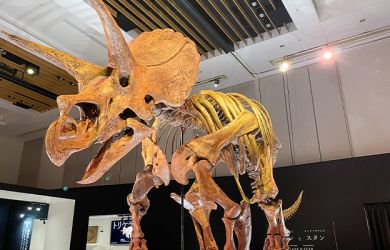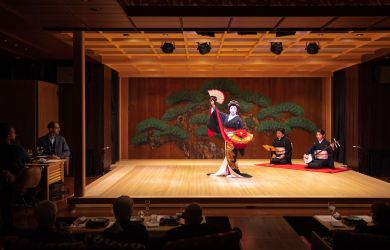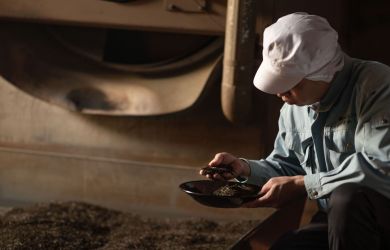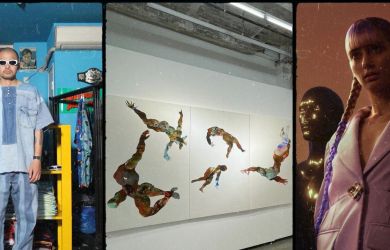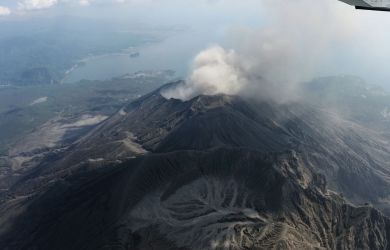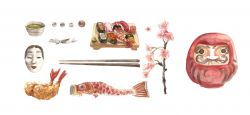
November 12, 2009
Down to Earth
Former Miss Universe Japan Kurara Chibana expands her horizons
By Metropolis
Originally published on metropolis.co.jp on November 2009

©EMIKO TENNICHI/MAGAZINE HOUSE
Many women who enter beauty contests fade from public view after all the hooplah is over. But not Kurara Chibana, who was first runner-up at the 2006 Miss Universe pageant. Bright and outgoing, the 27-year-old has used her experience in the contest as a platform for building a career.
“I’m working with the WFP [World Food Program] now, and I travel a lot as a reporter for a TV program sponsored by the foreign ministry,” says Chibana in excellent English. “I’ve been going to developing countries three or four times a year. At first, when I saw the poverty, I felt helpless because there was nothing I could do or say that would make a difference—except a smile.”
Born in Naha, Okinawa, Chibana spent two years in France and Spain in between her studies at Sophia University, where she majored in education. At the time, the idea of entering a beauty contest was alien to her.
“I didn’t know anything about such contests. But I wanted to get involved in charity work, so I thought that would be a good way,” she says. “I won Miss Universe Japan and went to the world finals. It was so much fun and inspired me a lot. Miss Universe was not my goal, but something I could use.”
Besides her TV and charity work, Chibana appears on the cover of Domani magazine each month. She says she’s conscious of the fact that she serves as a role model for many young Japanese women, and is constantly being asked for advice on her blog by women of all ages.
“It is important to build self-confidence, although in Japan, that can sometimes work against you,” says Chibana, who cites French actress Anouk Aimee, French first lady Carla Bruni and the late Audrey Hepburn as her own role models. “In Japanese culture, some people equate self-confidence with having a big ego. Then, because you fear rejection, you hide your passion and eventually, it becomes difficult to hold onto your beliefs and dreams. Establish yourself around people you can trust, like friends and family, until you become self-assured.”
She is also keenly aware of her role as an ambassador for Japan.
“I think there are many great things Japan does around the world that we should be proud of,” she says, citing developmental assistance to poor countries and programs like the Japan Overseas Cooperation Volunteers. “I’d like to see more promotion about what they are doing.”
Chibana has lost count of the number of countries she has been to. “I love talking to local people and seeing their situation. I always learn something from them.” She gets asked to attend a lot of charity functions, usually opting for those connected with children and women’s issues.
As an Okinawan, how does she feel about the US bases?
“The US military has provided a lot of jobs and other forms of economic support,” she answers. “I am not sure whether Okinawans would indeed benefit from the bases being removed. But it does seem better for more people to not have such a big US presence there.”
Despite her hectic schedule, the 173cm-tall Chibana takes time to keep in shape.
“I do stretch exercises every day and walk and run, when I can,” she says. “I don’t worry too much about my appearance when I go out. I don’t have to wear a disguise or anything. When I have a day off, I like to relax at home, listening to music or reading.”
What does the future hold? “I am planning to study nutrition science at university,” she says. “Last year, when I went to Zambia, I saw many malnourished kids. I was shocked. I live in Japan and don’t have to worry about food, but food issues are becoming very important worldwide. Also, I am often asked in interviews what I eat every day to keep in good condition. So I have to know about nutrition.”
Chris Betros is the editor of Japan Today (www.japantoday.com)


